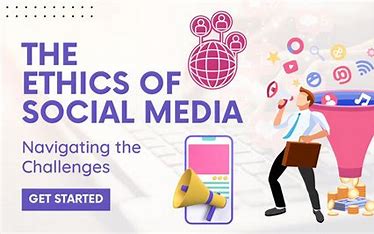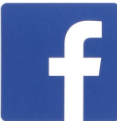Ethical use of social media
In social media, ethical use is a major concern and problem
that needs to be talked about.
By Alexander Chalson

Ethical use in social media is guidelines or morals a person follows that restricts their use of the internet. Ethical use could be different in different people’s eyes. In one person’s eyes, ethical use in social media would be to only use social media for work and school while in another person’s eyes, ethical use of social media could be using it for any thing but malicious activities. Social media provides a big role in today’s society as everyone uses it. Whether it be to show off things, asks questions, or something else. Social media can’t just be thrown away either, as it is a staple in marketing for for big and small companies alike. Now, ethical use of social media is a controversial topic for discussion due to many factors. Some of those factors are the fact that social media can show you fake news, cyberbully you, and violate your privacy and take your data!

Privacy concerns on social media include the fact that some sites may collect and sell your data to other companies without your permission. Some social media platforms allow you to choose whether or not they can collect your data, while others do not. Major issues with social media companies and your information include the methods they use to gather data and how they handle it. They may obtain your information through various means, such as data mining and surveillance. Data mining is the process of searching and analyzing large amounts of information to identify patterns and use them for various purposes. Surveillance involves collecting individual personal information for analysis, typically by government and intelligence agencies, while data mining is often used by private companies. These methods are controversial because many consider them to invade personal privacy. Additionally, the information collected is often sold to third parties.

What are some effects of social media on mental health? Well, according to The Healthline social media can impact mental health in several ways, including cyberbullying, social comparison, and addiction. Cyberbullying can make a person feel bad or insecure about themselves, leading to harmful behavior or self-harm. Social comparison can cause people to compare themselves to others online, leading them to want to change themselves, sometimes for the worse. Addiction to social media can lead to isolation from the outside world, increased risk of experiencing or perpetrating cyberbullying, and greater likelihood of comparing oneself to others. However, social media can also have positive effects, such as allowing people to connect during times of isolation and learn new things. To address these issues, companies should moderate and block certain content based on users’ age and location.

Can you always trust social media? The answer is no. A major issue with social media is that anyone can say anything they want, and people may believe it without verification. They could be sharing complete lies or the truth, but it’s often hard to tell. According to Wikipedia, around 75%-90% of the articles on their website are fake or contain false information. Misinformation can ruin lives and lead people to make decisions they would not have made if they had known the information was false. To combat this, it is essential to rely on credible sources and websites for news, rather than trusting random people on the internet.

Social media can affect relationships in both positive and negative ways. On the positive side, it allows you to stay in contact with family, friends, and others online. On the negative side, anyone can message anyone, posing as someone else and sending malicious messages, which can cause serious harm. Additionally, when messaging online, it’s difficult to interpret tone, which can lead to misunderstandings, which I know from experience. People might misinterpret your messages as disrespectful, even if you intended them in a completely different way.

In my use of social media, I mostly use it ethically. However, there are ways I could use it in a more ethical way. To improve, I need to stop comparing myself to others online and recognize that they are completely different from me. I could also reduce my use of social media by focusing only on purposes such as school and research, and avoiding activities such as playing video games. To make sure I responsibly use social media, I can turn off notifications for all platforms and stop scrolling through short videos. According to Cuker Insights, this could significantly help reduce my screen time and decrease the chances of addiction.

In the end, social media raises lots of privacy concerns because some platforms collect and sell users' data without permission, through methods such as data mining and surveillance. Social media can also impact mental health both positively and negatively. Negative impacts include cyberbullying, social comparison, and addiction, while positive effects include making connections with friends/family and learning purposes. Misinformation is another issue, and the best way to combat it is to only rely on credible sources. To address these issues, social media companies should moderate and block content based on users’ age and location.
Sources
10 Ways To Use Social Media More Responsibly | Cuker Insights (cukeragency.com)
Reliability of Wikipedia - Wikipedia
Issues in Ethics: Ethical Use of Social Media (asha.org)
The Ethical Use of Social Media in Mental Health | Psychology Today
Social media: Benefits vs. negative impact (medicalnewstoday.com)
How Social Media Affects Mental Health – Forbes Health
Social Media Privacy – EPIC – Electronic Privacy Information Center
9 Ways to Stay Safe on Social Media - Experian
Social Media and Mental Health: What's the Connection? (healthline.com)